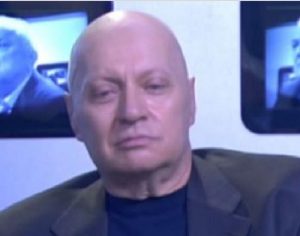“Laws would never have been improved if there were not too many people whose moral sense Was above the existing ones” john stuart mill (1806-1873) – an English philosopher, political economist and Member of Parliament

Michael Sandell, a Harvard University professor, says: “A dialogue that is missing from the nowadays politics is about the role of the market and the way it has become an inevitable part of our life. Do we want market economy or market society? What is the role the market is supposed to play in public life and our relationships? How can we decide which goods can be bought and sold and which ones should be managed by a non-market value?”
As far as modern understanding is concerned the one thing prof. Michael Sandell is asking is to what extent the supranational merging of markets, their global capacity to influence the national politics and economy of individual countries, deprives society of the most important achievements of democracy - statehood in particular, which is characterized by structures that ensure its social integrity - the basis of the state's immune system.
Which is created and sustained by politics oriented to welfare of the people, concern for poverty and reduction of inequality.
Prof. Michael Sandell’s idea is not only relevant but also quite necessary. Social reality in the so called “Eastern democracies” alarms about the necessity of a discussion about the market role in our life.
The one thing that prof. Michael Sandell does not clarify is between who the discussion will take place. Would it be only between minority of society segments which aggressively and relentlessly strives for the global finalization of its pervasive power or citizens who do not benefit from it unlike its protagonists would be allowed to take place in the discussion too? Actually, the question is about the way of governing the country.
As we add the mass media – the so called “the fourth power” to the other three authorities – legislative, executive and judiciary, let us see the different possible states of these different means of power.
First possible way of execution of legislative authority is when the people is the sole unconditional legislator. When the people is the sovereign that means that it and only it has the irrevocable right of taking legislative decisions. Hence the people sovereignty can only exists in places where citizens can propose laws and hold plebiscites to either accept or reject them.
Actually what is the difference between the terms “plebiscite” and “referendum”?
“Plebiscite” comes from the latin words “plebs”- meaning “the masses” and “scitum” – “resolution, decree, ordinance”. By plebiscites free citizens in ancient Rome (excluding women and slaves) made mandatory resolutions regarding state government i.e. resolutions that are not a subject of approvement of any other institution before being put into practice.
The situation with a referendum is quite different. The term itself comes from the latin word “re-fero” – „to gather, to report”. But as we all know well after the opinion of the people is gathered it might be thrown right away into the garbage. And the report might be completely forgotten.
Initially the Law on Direct Participation of Citizens in State Power and Local Self-Government has taken care to limit the field of action of the direct legislative outpouring of the Bulgarian sovereign through its Article 9, para. 2.
It states so many matters of the state government that are forbidden for the masses to speak about that it might be much more appropriate if it just states the matters that citizens can share their opinion about.
But to whom? To their managers who have usurped all the power? Because the people has not only been banned from taking decisions regarding paramount state importance but it has also been hindered in the chance of making the referendum a plebiscite, i.e. of making its decision mandatory.
First, the number of voters in the referendum must exceed the total number of voters in the previous National Assembly election. Second, the referendum question must be formulated as a proposal for approving or rejecting a fully defined law. If it is not, the people will is thorn into pieces. And constitutionalists do not protest about it.
The second possible state of the legislative system is when the people grants legislative power to others under given conditions and for a period of time. During that time the people does not gives up its right of legislative initiative and decisions and may directly or indirectly control the work of the legislature by vetoing.
However, Bulgarian people have not seen this type of state government during the whole time of the so called “transition period” since November the 10th 1989 onwards.
The third possible state – a disastrous one for the moral and material interests of the people is when it – the sovereign passes on the legislative authority for a period of time. During that time the people is deprived of its legislative power and rights and practically has no control over it.
This is the riskiest and as history has proven – the most tragic period for the sovereign, i.e. the people as it has granted someone else uncontrolled, non-refundable and unlimited power – until the term of office expires.
This leads to aggressive usurpation of power during the time period when the legislative body which is a sovereign means for performing state government becomes a replaced sovereign. And the real sovereign itself is lowered to the position of a subject of repression.
What are the options of exercising executive power?
When the sovereign does not directly exercise executive power thus the latter must be appointed directly by it. This happens when the persons appointed to exercise executive power are being chosen directly by the sovereign and the state of the administration of the state depends on written laws defined by the sovereign. And the latter is the only one that can change them as well as “remodel” the executive power when needed and desired.
Judiciary must meet a certain condition of neutrality i.e. to lack any bias. In case of unconditional sovereignty the sovereign itself is the judiciary. Another possible situation is when the sovereign either grants someone else the judiciary or grants only the power to appoint judges who will judge in the name of the sovereign.
The latter has two possible situations: the sovereign either has the right to withdraw voted powers under a certain procedure or the sovereign has given up the power to do so. Then the average chance of an ordinary citizen to get justice in the Temple of Themis becomes less than the chance of hitting the jackpot numbers in the lottery.
What is Summa summarum, i.e. the final conclusion as the ancient romans say?
The effective mechanism for counteracting the abuse of power by the ruling minorities is the continuous control from citizens and the ability to impose various sanctions, including recall from office.
- The author is chairman of the Board of directors of the Anti-corruption Association in Bulgariа







Leave a comment